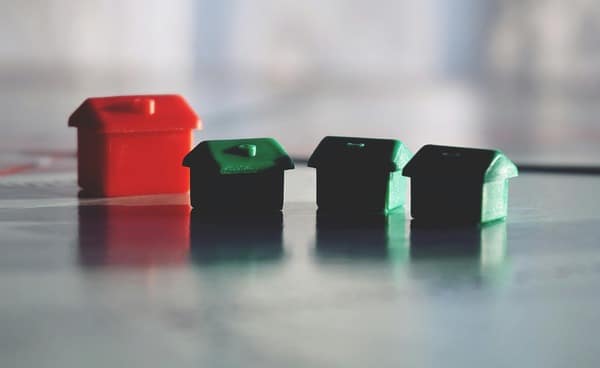
By Marilyn Odendahl
The Indiana Citizen
May 10, 2024
The racial and economic barriers to homeownership have deep roots in Indiana, even in communities like Bloomington that have striven to accept and support people of diverse backgrounds.
“I think it’s a problem in every community in America,” Michael Shermis, human rights director, ADA coordinator and special projects coordinator for the city of Bloomington, said of housing accessibility. Because Bloomington is “so progressive and liberal,” many people might assume it would not have these kinds of challenges, he added, “but we have an affordable housing problem and a history of fair housing issues in this community.”
The story of unequal housing access is told in the interactive, traveling exhibit, “Unwelcomed: A Fair Housing History of Sales & Lending Discrimination,” currently on display in the atrium of Bloomington City Hall, 401 N. Morton St. Presented by the Fair Housing Center of Central Indiana, in partnership with the Bloomington/Monroe County Human Rights Commission, the exhibit will be open to the public through the end of May.
The multi-panel exhibit provides an in-depth review of the historical and systemic barriers that have impacted many neighborhoods in the United States through redlining, racial covenants, intimidation, and discriminatory sales and lending practices, according to a press release from FHCCI.
“Through the Fair Housing Center’s work, it has become evident that many Hoosiers are unaware of the government policies and private actions that have led to generations of lost wealth, particularly to residents of color, through barriers of homeownership,” Amy Nelson, executive director of FHCCI, said in a statement. “It is our hope, through the Unwelcomed exhibit, to give viewers an opportunity to learn how or why they may live in segregated neighborhoods and what they can do to combat these discriminatory practices.”
New for the Bloomington showing are six additional panels focused on Monroe County’s housing history. The Monroe County Recorder’s office provided data on the area’s racial covenants in residential deeds and created an interactive map to give local context.
Also, the Bloomington/Monroe County Human Rights Commission pulled together more information about local housing complaints filed in the past.

Most people, Shermis said, think of the fight for fair housing as having occurred from the 1930s into the 1960s. However, the Human Rights Commission is still getting housing complaints especially in regard to racial and disability discrimination, he said.
Today’s barriers to housing are systemic and subtle, Shermis said. People complain about “not being treated the same as everyone else,” he said, but that can be difficult to ferret out and prove.
“We have a history of fair housing issues,” Shermis said. “These issues still exist and as people become educated about what our history is, they know there is potential for change, because people are still being discriminated against.”
Shermis believes the exhibit will get many visitors, since it will be accessible during normal business hours through the week and on the evenings when building stays open late for such things as city council meetings and on Saturday mornings during the farmers’ market.
As part of the Unwelcomed exhibit, the Human Rights Commission is recording written public comments from those who have viewed it. Visitors have written that they liked the presentation explaining how national housing issues are still impacting the community today and that they want to bring their children to see the exhibit.
Launched during Fair Housing Month in April 2022, the Unwelcomed exhibit has been traveling nonstop, moving nearly every month to a new location across Central Indiana.
The exhibit presents historic documents and news stories, as well as interactive QR codes with additional information and links for the viewer to explore. To date, a mix of governmental agencies, religious organizations, and businesses have hosted the exhibit to bring needed awareness and to open dialogue on how Hoosiers may come together to advocate for fair housing and challenge housing barriers and inequities.
Dwight Adams, a freelance editor and writer based in Indianapolis, edited this article. He is a former content editor, copy editor and digital producer at The Indianapolis Star and IndyStar.com, and worked as a planner for other newspapers, including the Louisville Courier Journal.
The Indiana Citizen is a nonpartisan, nonprofit platform dedicated to increasing the number of informed and engaged Hoosier citizens. We are operated by the Indiana Citizen Education Foundation, Inc., a 501(c)(3) public charity. For questions about the story, contact Marilyn Odendahl at marilyn.odendahl@indianacitizen.org